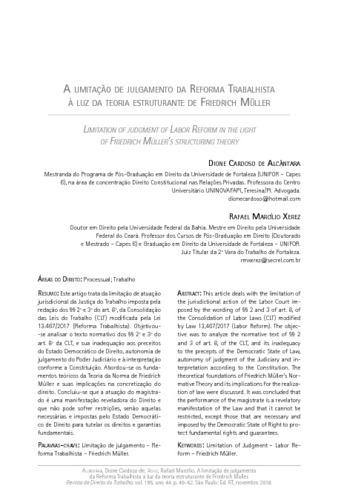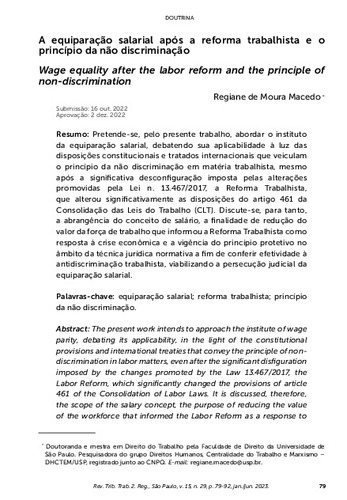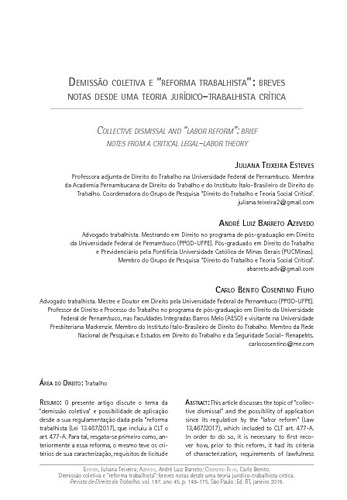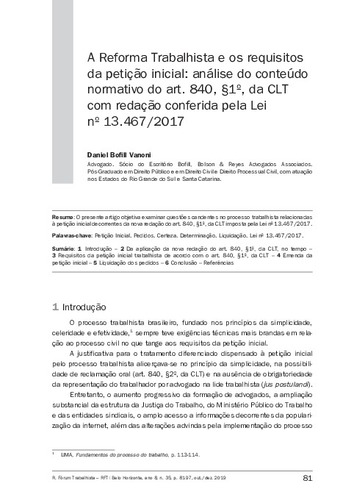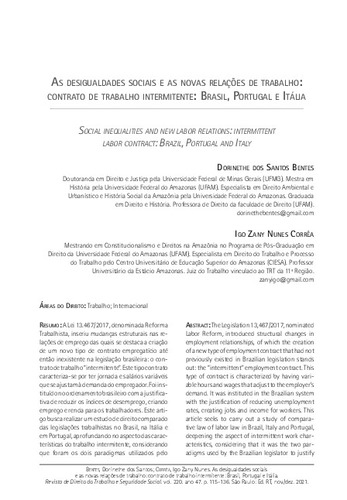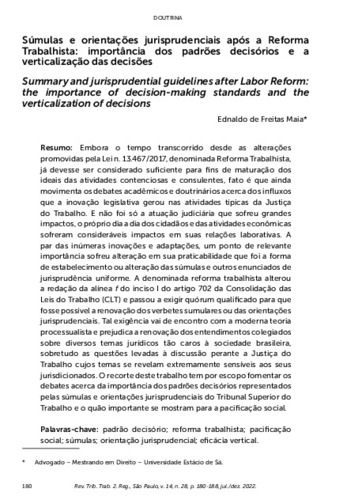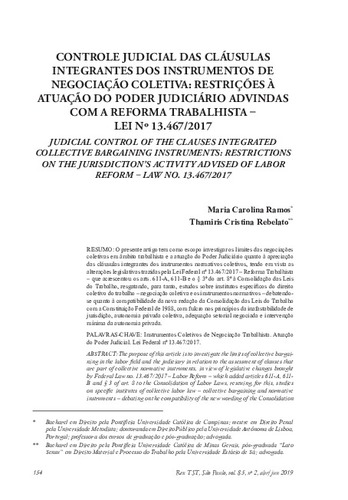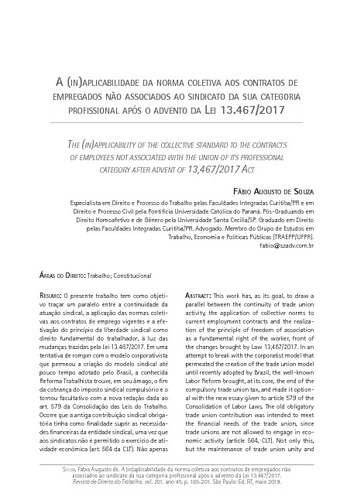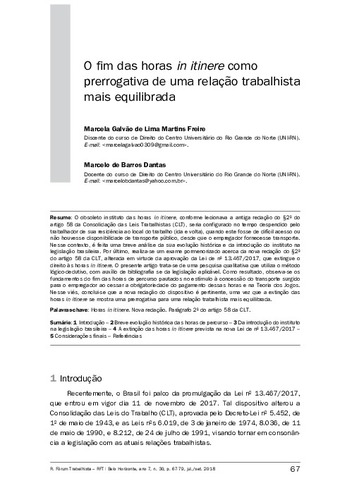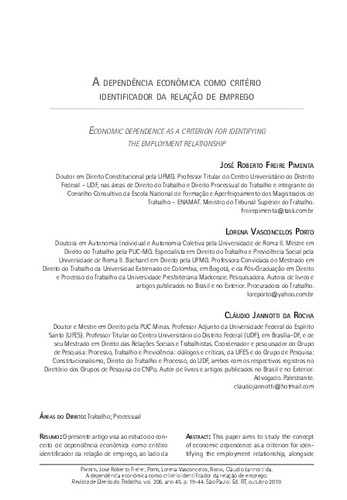Artigo de periódico
A limitação de julgamento da reforma trabalhista à luz da teoria estruturante de Friedrich Müller
| dc.contributor.author | Alcântara, Dione Cardoso de | |
| dc.contributor.author | Xerez, Rafael Marcílio | |
| dc.date.accessioned | 2019-08-27T16:44:25Z | |
| dc.date.available | 2019-08-27T16:44:25Z | |
| dc.date.issued | 2018-11 | |
| dc.identifier.citation | ALCÂNTARA, Dione Cardoso de; XEREZ, Rafael Marcílio. A limitação de julgamento da reforma trabalhista à luz da teoria estruturante de Friedrich Müller = Limitation of judgment of labor reform in the light of Friedrich Müller's structuring theory. Revista de direito do trabalho, São Paulo, v. 44, n. 195, p. 49-62, nov. 2018. | pt_BR |
| dc.identifier.uri | https://hdl.handle.net/20.500.12178/161212 | |
| dc.description.abstract | [por] Trata da limitação de atuação jurisdicional da Justiça do Trabalho imposta pela redação dos §§ 2º e 3º do art. 8º, da Consolidação das Leis do Trabalho (CLT) modificada pela Lei n. 13.467/2017 (Reforma Trabalhista). Objetivou‑se analisar o texto normativo dos §§ 2º e 3º do art. 8º da CLT, e sua inadequação aos preceitos do Estado Democrático de Direito, autonomia de julgamento do Poder Judiciário e à interpretação conforme a Constituição. Abordou‑se os fundamentos teóricos da Teoria da Norma de Friedrich Müller e suas implicações na concretização do direito. Concluiu‑se que a atuação do magistrado é uma manifestação reveladora do Direito e que não pode sofrer restrições, senão aquelas necessárias e impostas pelo Estado Democrático de Direito para tutelar os direitos e garantias fundamentais. | pt_BR |
| dc.description.abstract | [eng] This article deals with the limitation of the jurisdictional action of the Labor Court imposed by the wording of §§ 2º and 3 of art. 8º, of the Consolidation of Labor Laws (CLT) modified by Law 13,467/2017 (Labor Reform). The objective was to analyze the normative text of §§ 2º and 3 of art. 8º, of the CLT, and its inadequacy to the precepts of the Democratic State of Law, autonomy of judgment of the Judiciary and interpretation according to the Constitution. The theoretical foundations of Friedrich Müller’s Normative Theory and its implications for the realization of law were discussed. It was concluded that the performance of the magistrate is a revelatory manifestation of the Law and that it cannot be restricted, except those that are necessary and imposed by the Democratic State of Right to protect fundamental rights and guarantees. | pt_BR |
| dc.description.tableofcontents | A reforma trabalhista realizada pela Lei n. 13.467/2017 -- A teoria estruturante de Friedrich Müller -- A decisão judicial como ato criativo | pt_BR |
| dc.language.iso | pt_BR | pt_BR |
| dc.relation | Brasil. Lei n. 13.467, de 13 de julho de 2017 | pt_BR |
| dc.relation.ispartof | Revista de direito do trabalho: vol. 44, n. 195 (nov. 2018) | pt_BR |
| dc.relation.uri | https://www.lexml.gov.br/urn/urn:lex:br:federal:lei:2017-07-13;13467 | pt_BR |
| dc.subject | Reforma trabalhista, Brasil | pt_BR |
| dc.subject | Hermenêutica | pt_BR |
| dc.subject | Müller, Friedrich | pt_BR |
| dc.title | A limitação de julgamento da reforma trabalhista à luz da teoria estruturante de Friedrich Müller | pt_BR |
| dc.title.alternative | Limitation of judgment of labor reform in the light of Friedrich Müller's structuring theory | pt_BR |
| dc.relation.references | Brasil. Consolidação das leis do trabalho (CLT) (1943), art. 8º, § 2º, § 3º | pt_BR |
| dc.type.genre | Artigo de periódico | pt_BR |
| dc.identifier.rvbisys | 001138356 | |
| dc.relation.ispartoflink | https://hdl.handle.net/20.500.12178/160451 | pt_BR |
| dc.relation.referenceslink | http://www.lexml.gov.br/urn/urn:lex:br:federal:decreto.lei:1943-05-01;5452 | pt_BR |
Coleção
-
Artigos9566


